Art World
What to Do If Your Patron Is a Far-Right Firebrand? Red Bull Artists Respond
Should artists be expected to vet their corporate clients?
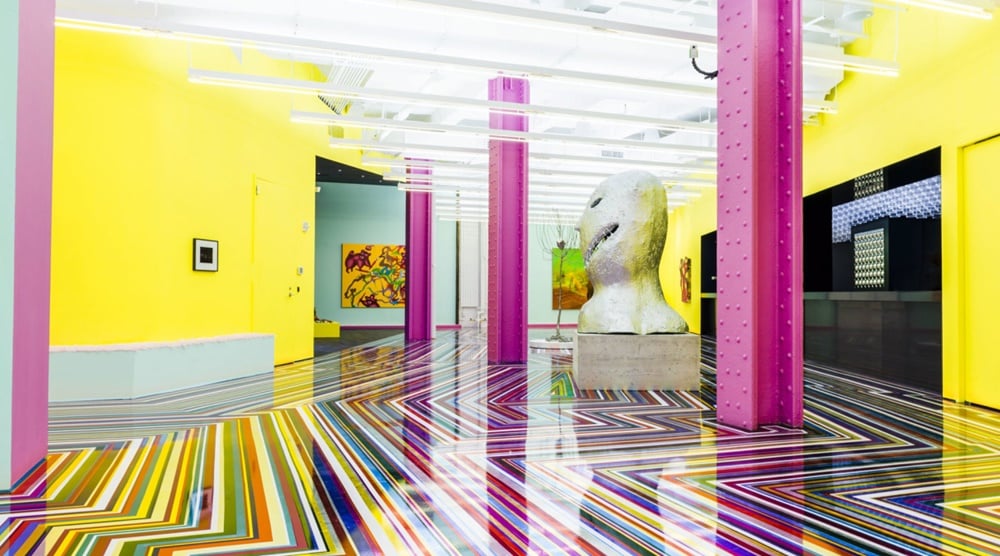
Should artists be expected to vet their corporate clients?

Brian Boucher

Many in the art and music worlds were shocked to learn last week that Dietrich Mateschitz, the CEO of the energy drink giant Red Bull, plans to launch an Austrian right-wing media website that has been compared to the US outlet Breitbart News. Red Bull has emerged as a towering figure in the world of corporate sponsorship in recent years, dedicating substantial funds to ambitious projects by contemporary artists, curators, and musicians in both Europe and the US, as well as athletes. (A spokesman for Red Bull Arts declined to specify how much money the company has spent on sponsorship.)
In the wake of the news, some wondered: how would artists who had worked with Red Bull react to their benefactor’s extreme political views? In contrast to the political convictions professed by its CEO, Red Bull Arts’ programming—and its participating artists—have skewed progressive. Under the directorship of Matt Eaton in Detroit, artists like Tschabalala Self, who explores the black female body, have undertaken residencies at Red Bull’s incubator. In New York, under director Max Wolf, artists from Ryan Trecartin to Robert Gober were included in the 2014 show “Spaced Out: Migration to the Interior.”
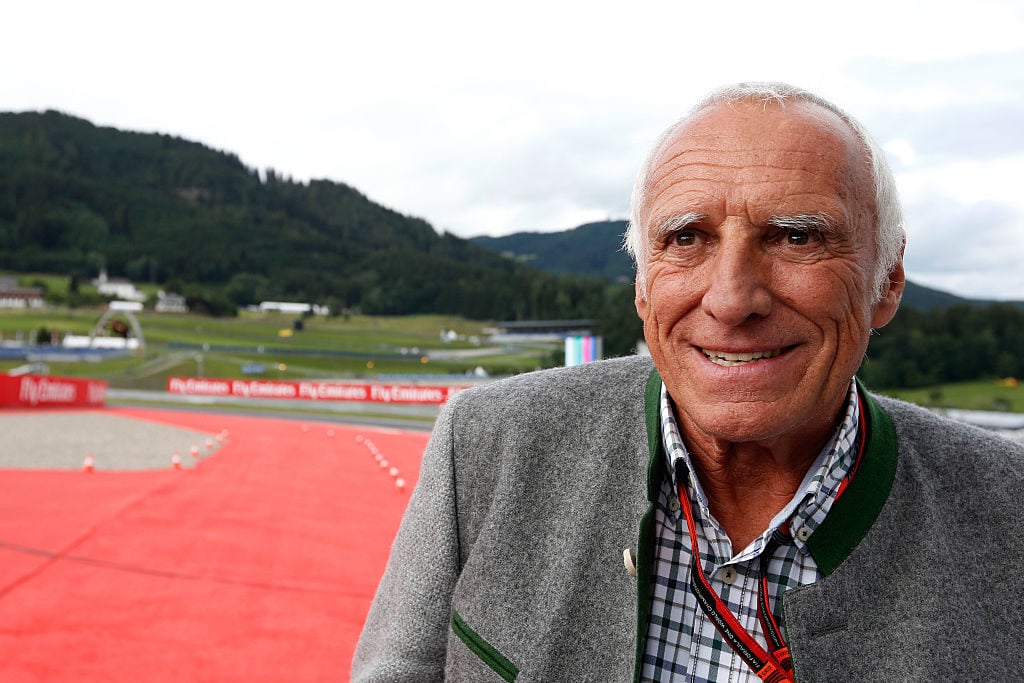
Red Bull CEO Dietrich Mateschitz at Red Bull Ring on June 20, 2015 in Spielberg, Austria. Photo by Charles Coates/Getty Images
Would these artists condemn the company, or decline to collaborate with Red Bull again? We spoke to several participants in Red Bull’s programs, and the verdict is clear: the art world is awash with morally compromised money, and most artists feel it is nearly impossible to draw hard and fast lines about who they will or won’t work with.
The Red Bull debate comes at a time when institutions around the world are facing increased scrutiny over their funding streams. In the UK, the National Portrait Gallery, Tate, and the British Museum have all been the target of protests for accepting support from the oil company BP. In the US, the activist group Occupy Museums recently took to New York’s Museum of Modern Art to protest the presence of Trump advisor Larry Fink on its board. And many participants in ArtPrize, the country’s largest prize for visual artists, have voiced concerns about the fact that the project is backed by the ultra-conservative DeVos family.
Artists say that in the Trump era, they have been moved to think even more carefully and critically about their patrons.
“Artists absolutely should vet the supporters of their projects or exhibitions, but you can reach a point of paralysis,” says Chicago-based artist Michael Rakowitz, who served on the 2012 jury for ArtPrize (but has not shown with Red Bull). “I can’t make my entire output about finding someone awful who supports a major exhibition I’m invited to show in.”
For its part, Red Bull Arts New York stands by its programming, which it maintains is distinct from the activities of its CEO. In a statement to artnet News, a spokesman says: “Over many years Red Bull has supported artists and athletes—offering them independence and enabling them to fulfill their dreams. This should be evident to anyone who looks at what we do.”
“As work on this project only began in April 2017, the organizational structure, range of topics, design and features of the platform have not yet been finalized,” said a Red Bull spokesperson in an email to artnet News. “Speculation that Quo Vadis Veritas [the nonprofit that was established to support the publication] will launch an ideologically motivated platform on behalf of Dietrich Mateschitz is simply wrong.”
Mixed views
artnet News reached out to 13 artists who have shown with Red Bull over the past year. Most declined to comment or could not be reached for comment. The three who spoke to artnet News said they found Red Bull’s exhibition and residency spaces to be among the most supportive environments they’ve ever worked in—not only in terms of funding and space, but also in allowing freedom of expression.
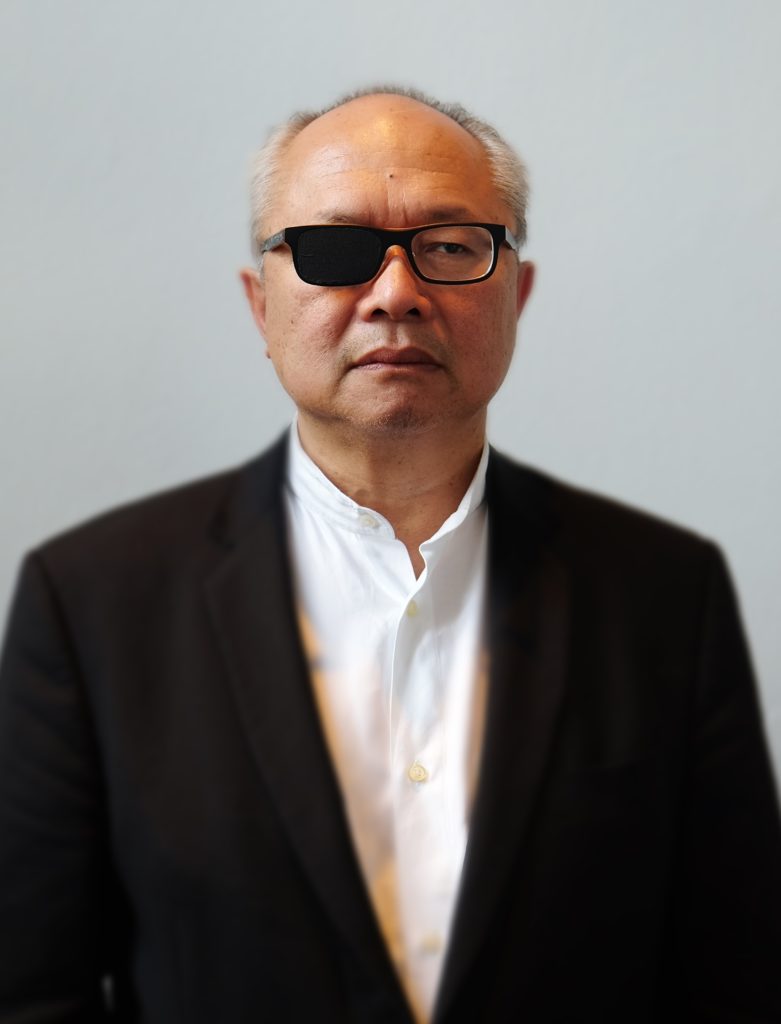
Mel Chin. Photo Wiles/Glover, courtesy of the artist.
Mel Chin, who last year showed props from a collaborative intervention on the set of the popular TV show “Melrose Place” at Red Bull Arts New York, says that “the curatorial and management staff were extremely supportive of radicalized thinking.” But, he adds, “As our own election revealed the America that is, this revelation of the CEO’s embrace of the far right has a sad expectancy and echo.”
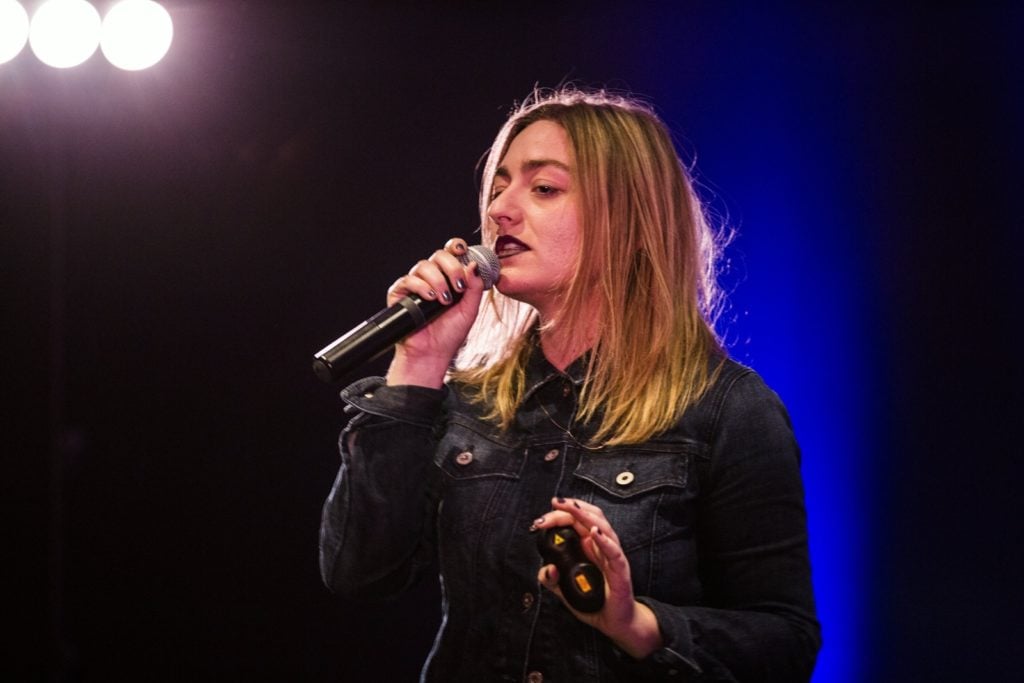
Casey Jane Ellison at UR$ (2016). Courtesy Red Bull.
Casey Jane Ellison, a comedian, writer, and artist who staged an event with lectures and performances at Red Bull New York in 2016, said that she had not heard about Mateschitz’s views before being contacted by artnet News. But as it happens, UR$, the video she made from footage of the daylong event, is about exactly the kind of quandary artists might face when receiving support from a patron whose views they oppose. “The performance was asking, ‘How does a person my age move money where they want it?’ It’s about figuring out your politics through money. And it’s one of my favorite things I’ve done.”
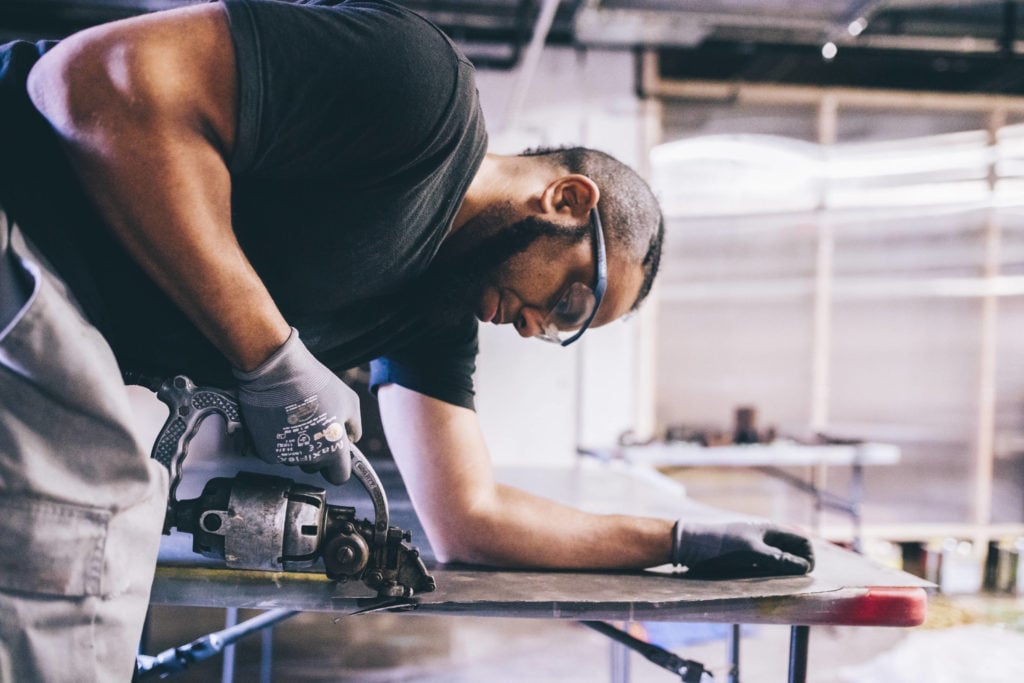
Coby Kennedy at his Red Bull Detroit Residency in 2016. Courtesy Red Bull.
Artist Coby Kennedy, who did a three-month residency with Red Bull in Detroit in 2016-17, says there is simply no way to avoid having your work collected by wealthy patrons whose views you find objectionable. Anyone who thinks the money they’ve gained through art sales is “clean” is in a state of denial, he says. Nevertheless, he maintains that the curators at Red Bull’s Detroit venue are intent on using the resources of a giant corporation to fund grassroots artistic expression. “I don’t think that’s going to change” because of the CEO’s politics, Kennedy says.
Kennedy also discouraged judging any organization by its leader alone, pointing out that a company like Red Bull employs hundreds of people, and that among them, “Not everyone is going to be your dream date.”
A bigger issue
Artists have long had to reckon with the reality of being supported by patrons with whom they disagree politically. Conflicts arose when Diego Rivera took a commission from John D. Rockefeller Jr. to paint a mural at Rockefeller Center in 1932 because the artist’s Communist views were so at odds with Rockefeller’s robber-baron capitalism.
In more recent years, some artists have worked to make their views heard without withdrawing from the system entirely. Steve Lambert made waves when, as a finalist for a $200,000 award at ArtPrize 2014 in Grand Rapids, Michigan, he announced he would donate any prize money to an LGBT charity. In his view, the DeVos family, which founded the prize, has long been “on the wrong side of the fight for civil rights for LGBT people.” (Betsy DeVos has since become Donald Trump’s Education Secretary.)
Rakowitz was torn for the same reasons when he was invited to serve on a jury for the 2015 edition of ArtPrize. In the end, he decided that participating would give him an opportunity to engage in a conversation about ethics that never would have happened otherwise. Sitting on a public panel during the competition, he silently telegraphed his critique by wearing a t-shirt bearing the slogan, “Some dudes marry dudes. Get over it.”
It can go both ways
The issue is not one-sided. Collectors, too, can—and have—turned up their noses at the work of artists with whom they disagree politically. Rakowitz notes: “After I said at the Creative Time Summit [in 2014] that I supported the cultural boycott of Israeli institutions, I had collectors return my work.”
Kennedy, meanwhile, has received criticism from fellow artists for provocative works like assault rifle vending machines, which he does not conceive as anti-gun. He acknowledges he does not fit into the presumed left-wing cliché of the artist. “I would definitely take the NRA’s money,” he says.
The New York-based artist Hank Willis Thomas (who has not showed with Red Bull) points out that the question of the “cleanliness” of cultural funding may be an oversimplified one. Thomas, who also co-founded the political action committee For Freedoms, notes that the United States was built on slavery and genocide, so can any American money be clean? “Just because the last person to touch it was clean, does that save it from being dirty? Giving adversaries money might be one thing. Taking money from them? Sure!”
The final test
Knowing what they know now, would previous Red Bull participants show there again? Chin says: “It depends on the exhibition and the vision behind it. There’s an ongoing, even expected, artist tradition of ‘biting the hand,’ so I might have to gnaw deeper.” He adds: “I can certainly say that during my career, I have tried to not be the left-wing spokesman of neo-capitalist colonial empires, and that includes times when the Whitney and other art institutions were heavily sponsored by Philip Morris.”
For Kennedy, the answer is even simpler. “If I could go back today, I’d go in a second.”
UPDATE: This story has been updated to include a statement from a Red Bull representative.